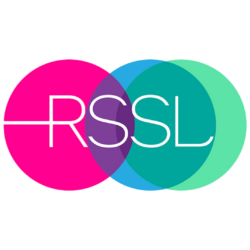
Waitress serving
RSSL’s team of allergen consultants have been supporting food businesses in navigating this challenging area of food safety for over 15 years. Here, we are considering the implications of the latest proposed changes.
Many food service businesses have been providing written allergen information to their customers for years now, but with discussions within the FSA and the wider industry around mandating this and bringing it into regulation, is this going to have a significant impact and will it result in increased consumer safety?
This won’t necessarily be a huge change for many businesses who are already operating a system whereby allergen information for customers is provided in a written form, either on a menu or a separate allergen guide of some kind. However for smaller businesses who may offer menus that are frequently updated, or those that prepare food to order based on customer requirements, this change could be hugely challenging.
In the FSA Board meeting held in December, it was clear that members were keen to make this change and to try to push it through as quickly as possible given the looming general election. However they were not clear on specifically what the requirement would be and how it would take different types of business operations into account, so we wait with bated breath to hear more.
It is not surprising that they are eager to be seen to be taking some kind of action. Sadly we continue to see tragic deaths and serious reactions occurring in people eating in food service settings. The hope is however, that some learnings will be taken from the roll out of Natasha’s Law, which the FSA’s own research has demonstrated a high proportion of businesses were still struggling to get to grips with 2 years on from its enforcement date.
Environmental health and trading standards officers are incredibly under resourced and it is not clear how this new requirement will be enforced in a way to make it meaningful. As discussed at the board meeting, for some businesses, this won’t be much of a change and the larger businesses will just get on and do it. It is likely to be the smaller businesses who struggle to keep up with the ever-changing demands that need the most help, but who unfortunately may not have easy access to it in the current climate.
The board debated the rationale for attempting to mandate that a business should have a conversation with an allergic consumer, and broadly it was agreed that this would be nye on impossible to implement and to enforce. However, the importance of staff being able to have a conversation with an allergic consumer to explain how they can access information and, very importantly, whether it is possible for the business to cater safely for their allergy should not be overlooked.
Ideally, kitchens would have separate areas to prepare dishes for consumers with allergies, using freshly cleaned utensils and dedicated equipment, but this is unlikely to be feasible for most. Consumers will also have different requirements from requesting a meal free from peanuts to one free from milk. Therefore the real risks of cross contamination need to be explained accurately so that they can make an informed choice. Consideration must also be given to those with allergies outside of the 14 declarable allergens – for example someone with a pine nut allergy needs to be able to find out which foods contain them.
Providing easily accessible written information will help the consumer, but it must be accurate. We know from the prepacked sector that failures in labelling due to cross-packing or errors in label design are to blame for the highest numbers of recalls. Failure in providing accurate information puts the consumer at serious risk, so processes will need to be in place to ensure the information is always 100% accurate.
We all want to see fewer deaths related to allergic reactions, and there will not be a simple solution that fits every business.
For any new regulated requirements to be introduced successfully, they need to be feasible and practical for all businesses, and it needs to be recognised that having a conversation is still incredibly valuable to the consumer.




